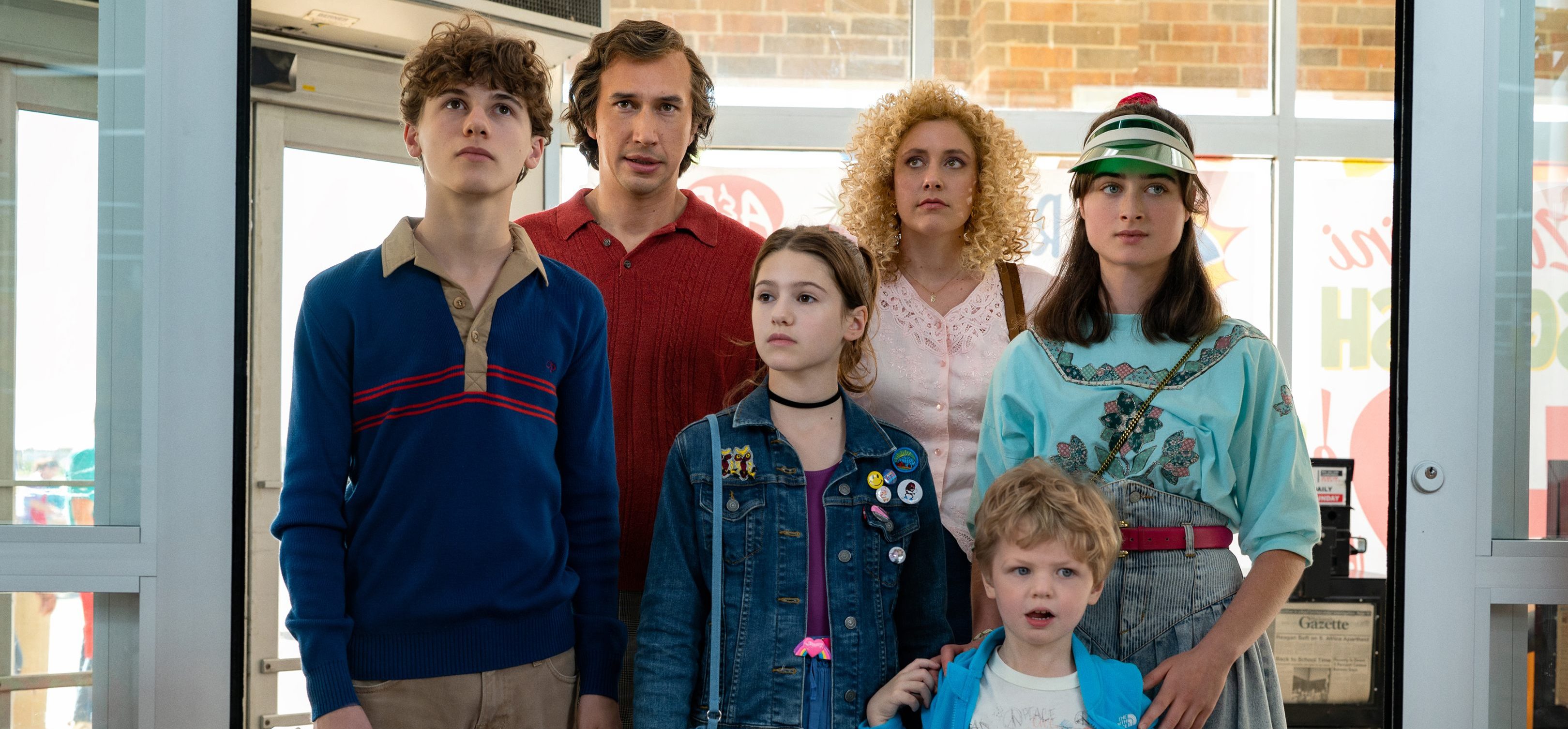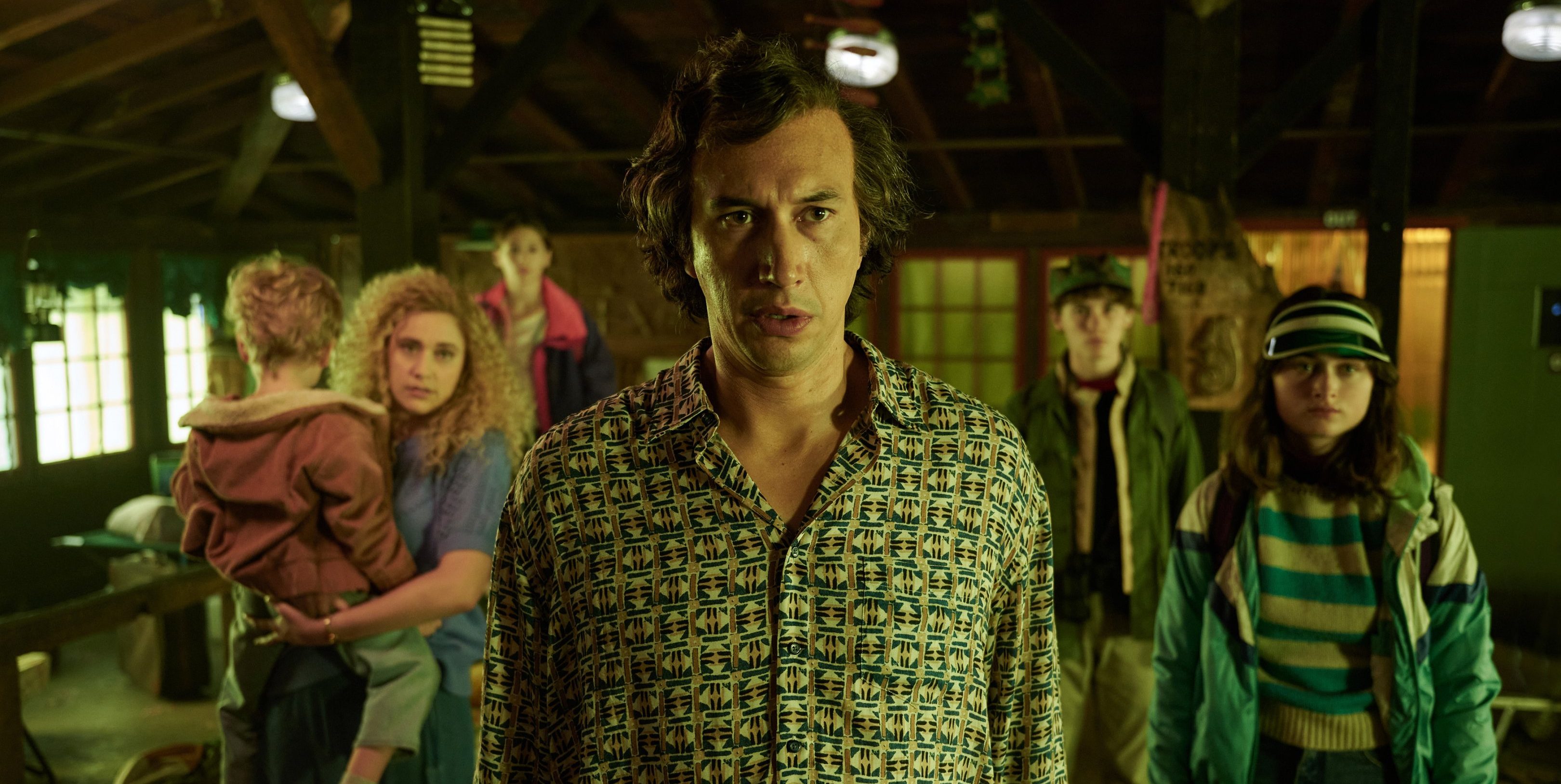Directed by Noah Baumbach, Netflix’s drama film ‘White Noise’ revolves around Prof. Jack Gladney, his wife Babette, and their children, who navigate life through the 1980s. Their lives take a turn when an “airborne toxic event” threatens the population of their bucolic town. The film progresses through the aftermath of the mysterious and startling event, which sows the seeds of fear of mortality in the minds of the Gladneys.
Using the point-of-view of the suburban family, Baumbach explores the cultural nuances of the period. Intrigued by the absurd family at the center of the director’s social commentary, we have found out whether ‘White Noise’ is based on actual incidents. Here’s everything you need to know about the same!
White Noise: An Adaptation of Don DeLillo’s 1985 Novel
‘White Noise’ is not based on a true story. The film is an adaptation of renowned novelist Don DeLillo’s eponymous 1985 novel. The fictional novel examines the 80s, a period known for the dominance of entertainment and television in American society. Although the narrative of DeLillo’s creation is fictitious, the author was heavily influenced by the era’s characteristics to conceive his novel, which includes the time’s approach to death.

“It [‘White Noise’] is telling this story of how, in our attempts not to deal with our own mortality, to really acknowledge death in a serious way in our culture, we somehow sublimated death into our entertainment,” Baumbach told Indie Wire. DeLillo wrote ‘White Noise’ when society sought comfort in television. Death and several other concerns like bioweapons became television spectacles rather than startling horrors of reality. “I kept turning on the TV news and seeing toxic spills, and it occurred to me that people regard these events not as events in the real world, but as television — pure television,” DeLillo told NPR at the time of the publication of the novel.
Baumbach, like DeLillo, tries to bring out the elements of truth, which includes mortality, that exists in the culture and society we live in. Through Jack and Babette’s fear of death when the world forgets about the reality of the same, Baumbach depicts how the fictional deaths in entertainment have affected reality. “By cloaking yourself in death and horror, you’re somehow protecting yourself from real death and horror,” the director added to Indie Wire. Although the eponymous novel is not based on a true story, it is acknowledged as “prophetic.”
The airborne toxic event in the novel reminds us of the Covid-19 pandemic, which startled the world decades after the novel’s publication in 1985. Baumbach combined his pandemic experiences with DeLillo’s apocalyptic event to conceive a part of the film’s narrative. “It felt like a movie, going into the supermarket at times—no toilet paper, that madness that we all lived through [during the pandemic]. So I had both DeLillo’s supermarkets and what we had been going through in my mind,” the director told Vogue.
Still, Baumbach didn’t try to set his film in the present time. He wanted ‘White Noise’ to have a certain distance from reality to comment on the same accurately. “I think of this movie as floating somewhere above reality. It’s close but not entirely with its feet on the ground,” the director said in the same Indie Wire interview.

DeLillo wrote his novel also as a critique of Americans’ “consume or die” nature. In the book, Jack fights his fears of mortality by buying an immense amount of goods from the local supermarket, which makes him feel “bigger than the sums.” Baumbach sets several of the film’s significant scenes in a local A&P supermarket to depict the “survival” mechanisms of the Jacks in the 1980s. Another considerable part of the novel presents itself as a satire on academia. Jack and his fellow professors are obsessed with subjects that are part of the popular and youth culture, which makes them ignore the pivotal and relevant topics of study.
Baumbach skilfully integrates the same part in his film through the academic conflicts between Jack and his fellow professor Murray Siskind. Although DeLillo’s novel is infamous as an “unfilmable” text, Baumbach succeeded in integrating the essence of the author’s account of the 1980s into his version. “DeLillo, on the one hand, is telling the story of a family in a contemporary, elevated version of society in the ’80s, but a big part of that is illustrating the influence that culture and pop culture, advertising culture, movie culture, TV culture, news culture has on our lives. I felt like that’s all inherent in how I shot it,” Baumbach made it clear in an interview given to AP.
Ultimately, Baumbach’s ‘White Noise’ is a recollection of the harsh reality of the 1980s, combined with fantasy elements. “It was fun to essentially do a nostalgic, alternate ’80s, which wasn’t really what [the decade] was like. Everything was inspired by real things, but we were looking at a memory-slash-fantasy-slash-idea of a time and place,” Baumbach added to Vogue.
Read More: Where Was Netflix’s White Noise Filmed?


You must be logged in to post a comment.